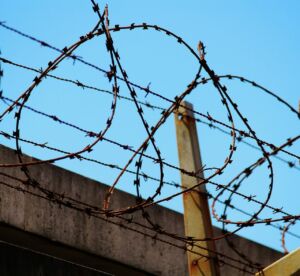News
Children as young as 12 in ‘child prisons’
This article is more than 10 years old.
112 children locked up in the past five years

Experts say Danish children’s institutions bear a striking resemblance to US youth prisons (photo: Counselling)
According to DR, five children under the age of 15, including two 13-year-olds, are currently behind bars at four of the country’s eight secure children’s institutions.
And it’s five children too many, says Inge Bryderup, a professor of social work at Aalborg University, who criticises the institutionalisation of children at such a young age.
“They are some very troubling policies,” Bryderup told DR.
“It should be all about the children, both convention-wise and legislatively. These children are less than 15 years old.”
“Secure institutions bear a striking resemblance to what in other countries are referred to as youth prisons, and it can be harmful for children to be placed in such environments.”
112 placements of five years
According to new figures from Danske Regioner, there have been 112 cases of children under 15 being detained in the last five years, with the youngest recorded detainee only 12 years old.
Some of the children who are placed behind bars have committed a crime, while others are children deemed to be a danger to themselves or others.
The organisation Save the Children asserts it is dangerous to place children in secure institutions, as they are often placed with 17 or 18-year-old offenders convicted of robbery, rape and even murder.
“It is wrong to place children aged below the age of criminal responsibility with someone who is much further in their criminal development,” psychologist Kuno Sørensen from Save the Children told DR.
Danish prisons ‘stricter’ than the USA
One of the topics discussed in this year’s election campaign is whether to take tougher action against children who commit crimes or are a danger to others.
However, according to Inge Bryderup, Danish society already uses a very firm approach towards children and young people placed in secured institutions.
“I have visited youth prisons in the United States, and in strictness, the Danish institutions holds its own against the US,” she said.
From a different stance, Tea Bengtsson, an assistant professor at the Department of Sociology at the University of Copenhagen, is quick to assert there are some, albeit very few, differences between the two types of institutions.
For two and a half months, Bengtsson has observed and interviewed young detainees, and she believes that the only difference between secure institutions and an actual prison is that it’s not prison personnel in secure institutions, it is educators.
Experts doubt a long-term effect
Socialdemokraterne’s social spokesperson Pernille Rosenkrantz-Theil considers there is nothing wrong with placing children under 15 in secure institutions.
For although there are maximum security measures around, she points out that it’s important to remember what a secure institution actually is.
“It’s kind of like a social education emergency room, where there is peace and regularity, and where there are social workers around all the time, ready to help the young people,” she told DR.
“And though it’s sad that these children must be locked inside, it is often necessary in order to ensure these young children do not harm themselves or others.”










































